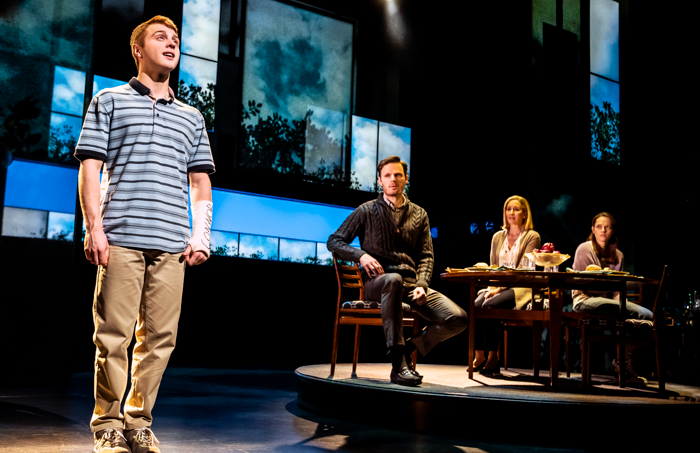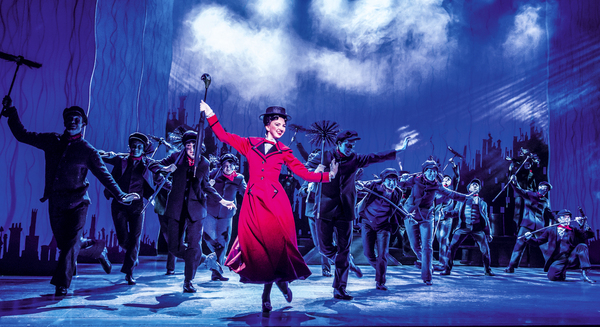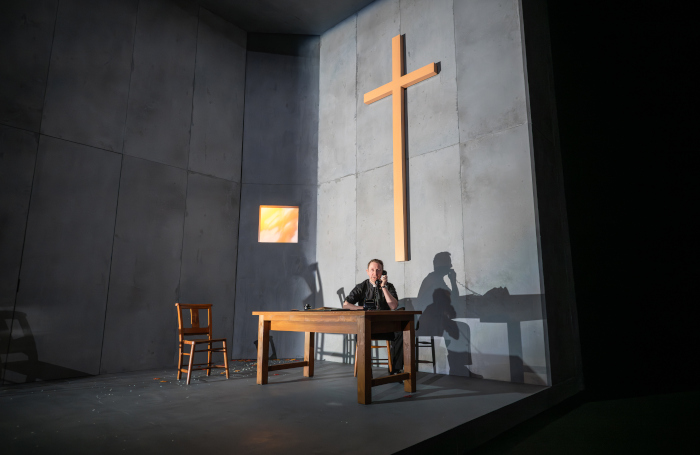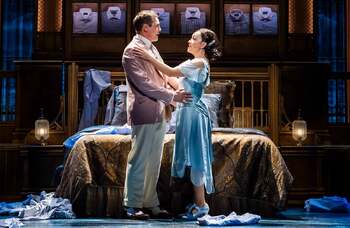Dear Evan Hansen
The best and the worst thing about being a teenager is the fact that it doesn’t last forever. Broadway phenomenon Dear Evan Hansen channels the dark, churning adolescent angst of shows like Heathers and Spring Awakening, but brings it up to date. It takes that angst seriously, asking questions about mental health, about connection and isolation among teenagers today, and ends up being as overwhelming and complicated as adolescence itself.
Evan Hansen has no friends. In an early song, Waving Through a Window, he sings: “I try to speak, but nobody can hear…I’m waving through a window, can anybody see, is anybody waving back at me?” He’s one of many teenagers living with anxiety and depression, feeling completely isolated and invisible in a world that’s meant to be more connected than it’s ever been. His mum feels like she’s losing him, and his therapy isn’t working.
When another lonely classmate, Connor, takes his own life, Evan decides to pretend they were best friends. The motives are good – to make Connor’s family feel better – but the lies snowball.
Straight out of drama school, Sam Tutty is not only thrust into the spotlight in his West End debut as Evan Hansen, but also up against the legacy of Ben Platt, whose intense performance in the original Broadway production was a large part of the reason it won such devoted fans.

Tutty does his own thing, and he soars. Crucially, he’s more likeable than Platt, which solves some of the show’s problems. His Evan is a tight, jittery knot of anxiety, embarrassed by his own existence, looking the whole time like he wishes the world would swallow him up. His panicky, rabbit-in-headlights expression never leaves his pale face, and he fiddles with his fingers and shirt buttons like he’s surprised he’s got limbs and not sure what to do with them.
If he relies too much on the speedy delivery of his lines to signal his anxiety, that’s only a minor complaint. The horrific turmoil of anxiety is all there. A particular high point sees him sing the confessional, unburdening song Words Fail while also breaking down in floods of ugly, snotty tears.
The rest of the cast is wonderful. Lucy Anderson makes a striking professional debut as Evan’s crush Zoe, and Rebecca McKinnis does strong work as Heidi Hansen, a single mum working as a nurse while taking evening classes in the hope of giving Evan a better life. McKinnis skilfully brings out the mixed-up emotions of the situation: guilt at being absent so often, love, worry. There’s a particularly soul-baring performance from Lauren Ward as Connor’s mum Cynthia.

As shown in The Greatest Showman, Pasek and Paul have cracked the formula for four-chord pop songs; songs with a golden touch that means they’ll be audition numbers for the rest of time. Yes, a couple of those in second act are mawkish, but the rest are superb.
Alex Lacamoire – Hamilton’s orchestrator – has given them clever arrangements for an acoustic band, full of hooks and flourishes.
Michael Greif’s direction, like Evan himself, is sometimes a little awkward, with a tone that somersaults between comedy and grief, but there are some moments – Evan standing in slight darkness as he admits what he’s done to the Murphys – that are beautifully put together. In David Korins’ striking set design, translucent panels show screenshots of tweets, Facebook posts and messages like shrapnel, all surrounded by a black void.
The book by Steven Levenson (Fosse/Verdon) has a lot to say about social media – particularly about what legacy and memory mean in a space that simultaneously remembers everything forever and also instantly forgets you when the next viral thing comes along. Levenson asks what it means to be alive and to be seen when you’re a teenager in that context. And asking those questions leads to a show that’s trying to speak on a level with a younger audience – and succeeding, if the devoted cult of Evan Hansen is anything to go by.
The show’s more jagged edges are smoothed out by the slightly soapy plot. Levenson lets Evan off the hook. The consequences of his actions are minimal and the healing is way too easy, especially within the context of this messy, complicated portrait of mental health.
You’re left feeling a bit battered by fortissimo moments, searing spotlights, surges of sound and emotion, swept along on a tide. It’s tempting to rationalise and resist: on one level, this is just a teen drama with a silly plot and some pop songs. But the tide wins out. The show’s intentions are too important to ignore. Even with its flaws and shortcomings, Dear Evan Hansen matters because what it’s trying to say completely squares with what it’s trying to do.
That is to say, it’s a musical all about connection, anxiety and loneliness that reaches out to the anxious and lonely and tries to make a connection with them. If you’re the one waving through a window, it’s Dear Evan Hansen that’s waving back.
Dear Evan Hansen review at Music Box Theatre, New York – ‘devastatingly powerful’
More Reviews
Recommended for you
More Reviews
Recommended for you
Most Read
Across The Stage this weekYour subscription helps ensure our journalism can continue
Invest in The Stage today with a subscription starting at just £7.99













